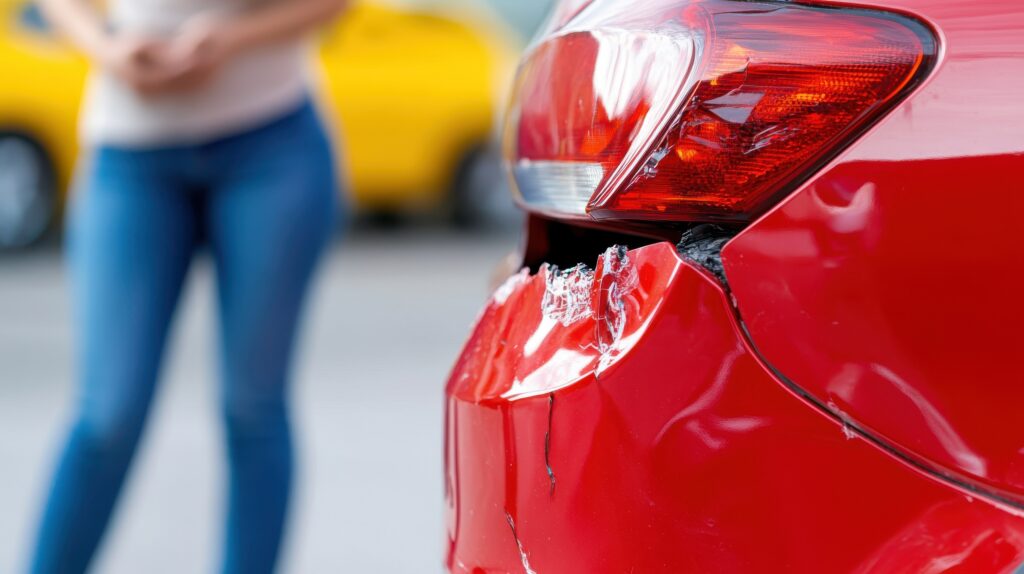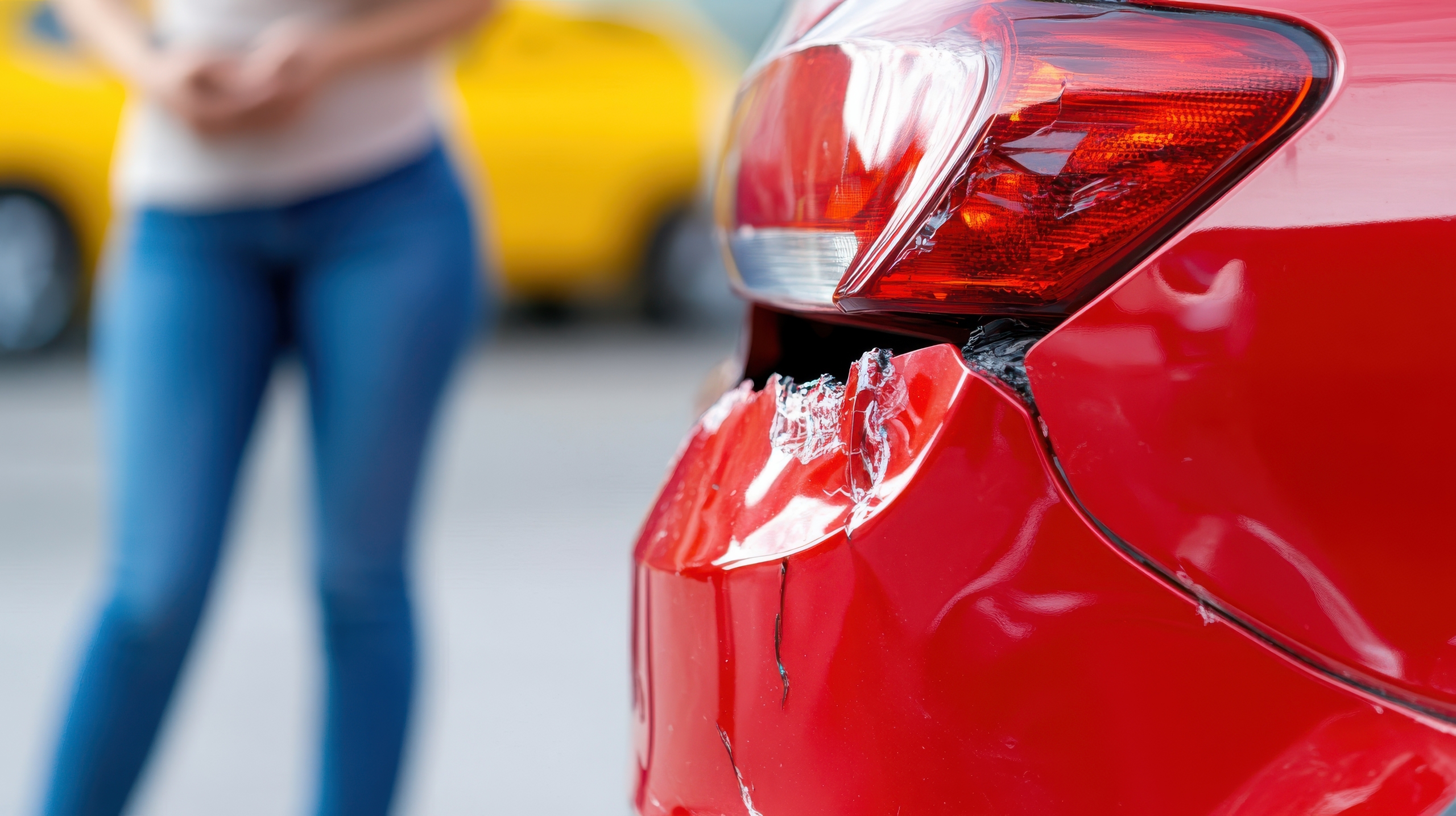Do You Need a Lawyer for a Minor Car Accident in Florida?
Minor car accidents are a common occurrence on Florida’s busy roads. Whether it’s a fender bender at an intersection or a minor collision in a parking lot, these incidents can seem trivial at first. However, even small accidents can lead to unexpected complications, including disputes with insurance companies, unforeseen injuries, and legal responsibilities.
Many drivers assume that minor accidents don’t require legal intervention. However, underestimating the potential legal ramifications can cost you time, money, and peace of mind. This comprehensive guide will help you understand when it’s essential to hire a lawyer after a minor car accident in Florida, how to handle insurance claims, and what to expect from the legal process.

Understanding Florida’s Minor Car Accident Laws
Florida’s road regulations regarding car accidents are designed to ensure safety and accountability. Even when the accident seems minor, there are legal obligations that you must fulfill to protect your rights and avoid penalties.
Legal Requirements After a Minor Accident in Florida
Florida law mandates that you must report any car accident resulting in injury, death, or property damage exceeding $500 to local law enforcement. While it might seem unnecessary for a minor collision, failing to report an accident can lead to legal consequences.
Here’s what you should do immediately after a minor car accident:
- Call the Police: If anyone is injured or the property damage appears significant, it’s crucial to contact law enforcement. An official police report serves as an essential document if you need to file a claim or take legal action later.
- Exchange Information: Gather the other driver’s name, address, phone number, driver’s license number, and insurance details. Take note of the vehicle make, model, and license plate number.
- Document the Scene: Use your smartphone to take pictures of both vehicles, any visible injuries, the surrounding area, and any road conditions that may have contributed to the accident. Photographing license plates and traffic signals can also be helpful.
- Speak to Witnesses: If there were bystanders who saw the accident, get their contact information and statements. Their testimony could be crucial if there is a dispute about fault.
- Seek Medical Attention: Even if you feel fine, some injuries, such as whiplash or soft tissue damage, may not manifest immediately. A medical evaluation ensures that your injuries are documented and linked to the accident.
Why Reporting is Crucial
Even in minor accidents, documenting the event can protect you legally and financially. Without a police report, insurance companies may question the validity of your claim or deny coverage altogether. Additionally, if the other party later decides to file a claim for damages or injuries, having a recorded statement from law enforcement can prevent false allegations.
Insurance Claim Process for Minor Car Accidents
Filing an insurance claim after a minor accident can be more complex than expected, especially if the fault is disputed or the insurance company questions the severity of the damages.
Step 1: Notify Your Insurance Company
Florida operates under a no-fault insurance system, meaning your own insurance covers your medical expenses regardless of who caused the accident. You must contact your insurance provider as soon as possible to start the claims process.
- Personal Injury Protection (PIP): PIP insurance covers your medical expenses and lost wages up to $10,000. It is required for all Florida drivers.
- Property Damage Liability (PDL): This covers damages you cause to another person’s property.
Step 2: Filing the Claim
Once you notify your insurer, you will need to:
- Provide detailed information about the accident.
- Submit the police report if available.
- Document any medical treatments and related expenses.
Step 3: Dealing with Insurance Adjusters
Be cautious when speaking with insurance adjusters. Their primary goal is to minimize the company’s payout. Here are some tips:
- Stick to the Facts: Only provide basic details without speculating about fault.
- Do Not Admit Guilt: Even saying, “I’m sorry,” can be interpreted as admitting liability.
- Consult a Lawyer First: If you are unsure about what to say, consult a lawyer to ensure your statement does not inadvertently harm your claim.
Step 4: Settlement and Compensation
If the insurer offers a settlement, review it carefully. Insurance companies may offer low settlements initially, especially if they sense you are not represented by a lawyer. An attorney can help negotiate a fair compensation amount that covers your medical bills, car repairs, and potential loss of income.
Situations That Require a Lawyer After a Minor Accident
Not every minor car accident necessitates hiring a lawyer. However, there are several scenarios where legal representation is crucial to protecting your interests.
Disputed Fault and Insurance Denials
If the other driver disputes who was at fault, or if the insurance company denies your claim, a lawyer can help you build a strong case. Lawyers can:
- Investigate the accident by gathering surveillance footage, eyewitness testimonies, and expert analyses.
- Challenge the insurance company’s decision through formal disputes or litigation.
- Represent you in court if necessary.
Injuries That Appear Minor but Develop Over Time
Some injuries, like concussions or soft tissue damage, may not be immediately apparent. If you initially dismiss medical care but later experience symptoms, proving the injury’s connection to the accident can be challenging. A lawyer can work with medical experts to establish a clear link between the accident and your injuries.
Property Damage Disputes
If the cost to repair your vehicle exceeds the insurer’s estimate, you may need a lawyer to challenge the appraisal. Legal assistance can ensure that your vehicle’s damage is properly assessed and adequately compensated.
Cost Considerations for Hiring a Lawyer
Many people hesitate to hire a lawyer due to the potential costs. However, most car accident attorneys in Florida work on a contingency fee basis.
Typical Fees for Minor Accident Legal Help
- Contingency Fees: Typically, a lawyer will take around 33% of the settlement. You only pay if you win.
- Hourly Rates: Some complex cases may require hourly billing, ranging from $100 to $500.
- Flat Fees: These are less common but may apply for consultation or document preparation.
Is It Worth It?
While handling a claim independently may save legal fees, it can result in lower settlements. Insurance companies are more likely to offer fair compensation when a lawyer is involved, as they know the risk of litigation increases.
Alternatives to Hiring a Lawyer
Sometimes, handling the case yourself can work, particularly if the damage is minimal and there is no dispute.
Small Claims Court
If the damages are under $8,000, Florida’s small claims court can be an efficient way to resolve disputes without a lawyer. You will need to:
- File a small claims action.
- Present evidence, including photographs and witness statements.
- Represent yourself during hearings.
DIY Insurance Negotiation
If the accident is minor and liability is clear, you may choose to negotiate directly with the insurance company. Be prepared to:
- Present strong evidence.
- Understand policy limitations.
- Know when to escalate the issue to a lawyer if negotiations fail.
Frequently Asked Questions About Minor Car Accident Lawyers in Florida
Is it necessary to hire a lawyer after a minor car accident in Florida?
It depends on the circumstances. If the accident resulted in injuries, even minor ones, or if the insurance company disputes your claim, hiring a lawyer can be beneficial. A lawyer can help you navigate complex insurance processes, gather evidence, and negotiate a fair settlement. Additionally, if the other driver denies fault or you are facing legal challenges, legal representation becomes crucial.
What should I do immediately after a minor car accident in Florida?
First, check for injuries and ensure everyone’s safety. Call the police to file an official report, especially if there are injuries or significant property damage. Exchange information with the other driver, including names, contact details, insurance information, and vehicle registration. Take photos of the accident scene, vehicle damage, and any visible injuries. Collect witness information if available, and seek medical attention even if you feel fine, as some injuries may appear later.
Can I handle a minor car accident claim without a lawyer?
Yes, you can handle a minor car accident claim on your own, especially if the damages are minimal, fault is clear, and the insurance company is cooperative. In such cases, it may not be necessary to hire a lawyer. However, if the insurance company denies your claim, offers an inadequate settlement, or disputes liability, consulting a lawyer is advisable.
How much does it cost to hire a lawyer for a minor car accident case in Florida?
Most car accident lawyers in Florida work on a contingency fee basis, which means they only get paid if you win the case. Typically, the fee ranges from 33% to 40% of the settlement amount. Some lawyers may charge hourly rates or flat fees for consultations or specific legal tasks, but contingency arrangements are the most common.
What if the other driver doesn’t have insurance?
If the at-fault driver does not have insurance, you may still recover compensation through your own uninsured motorist coverage if you have it. In this situation, a lawyer can assist you in filing a claim with your insurance company and ensure that you receive the compensation you are entitled to.
Contact Lawlor, White & Murphey Today
If you have been involved in a minor car accident in Florida, don’t take risks with your rights and compensation. Speaking to a lawyer early can help you avoid costly mistakes and secure the compensation you deserve.
For a free consultation, contact Lawlor, White & Murphey today to discuss your case and understand your legal options. Protect your rights and make informed decisions with expert legal guidance.
